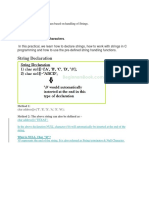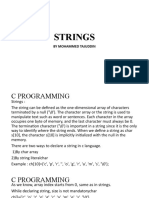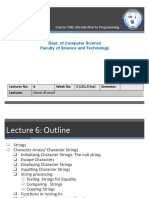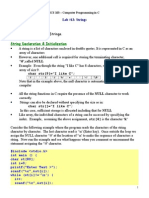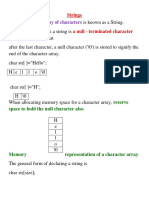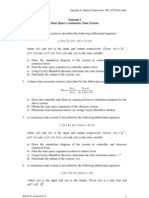0% found this document useful (0 votes)
13 views12 pagesPSPC Unit IVc Strings in C
This document is a lecture note on 'Problem Solving and Program Design using C', specifically focusing on strings in C programming. It covers string definitions, operations like strcpy, strcat, strcmp, and strlen, along with examples and exercises for practical understanding. Additionally, it includes character functions and programs to manipulate strings, such as reversing strings and counting vowels.
Uploaded by
gdrivee515Copyright
© © All Rights Reserved
We take content rights seriously. If you suspect this is your content, claim it here.
Available Formats
Download as PDF, TXT or read online on Scribd
0% found this document useful (0 votes)
13 views12 pagesPSPC Unit IVc Strings in C
This document is a lecture note on 'Problem Solving and Program Design using C', specifically focusing on strings in C programming. It covers string definitions, operations like strcpy, strcat, strcmp, and strlen, along with examples and exercises for practical understanding. Additionally, it includes character functions and programs to manipulate strings, such as reversing strings and counting vowels.
Uploaded by
gdrivee515Copyright
© © All Rights Reserved
We take content rights seriously. If you suspect this is your content, claim it here.
Available Formats
Download as PDF, TXT or read online on Scribd
/ 12



